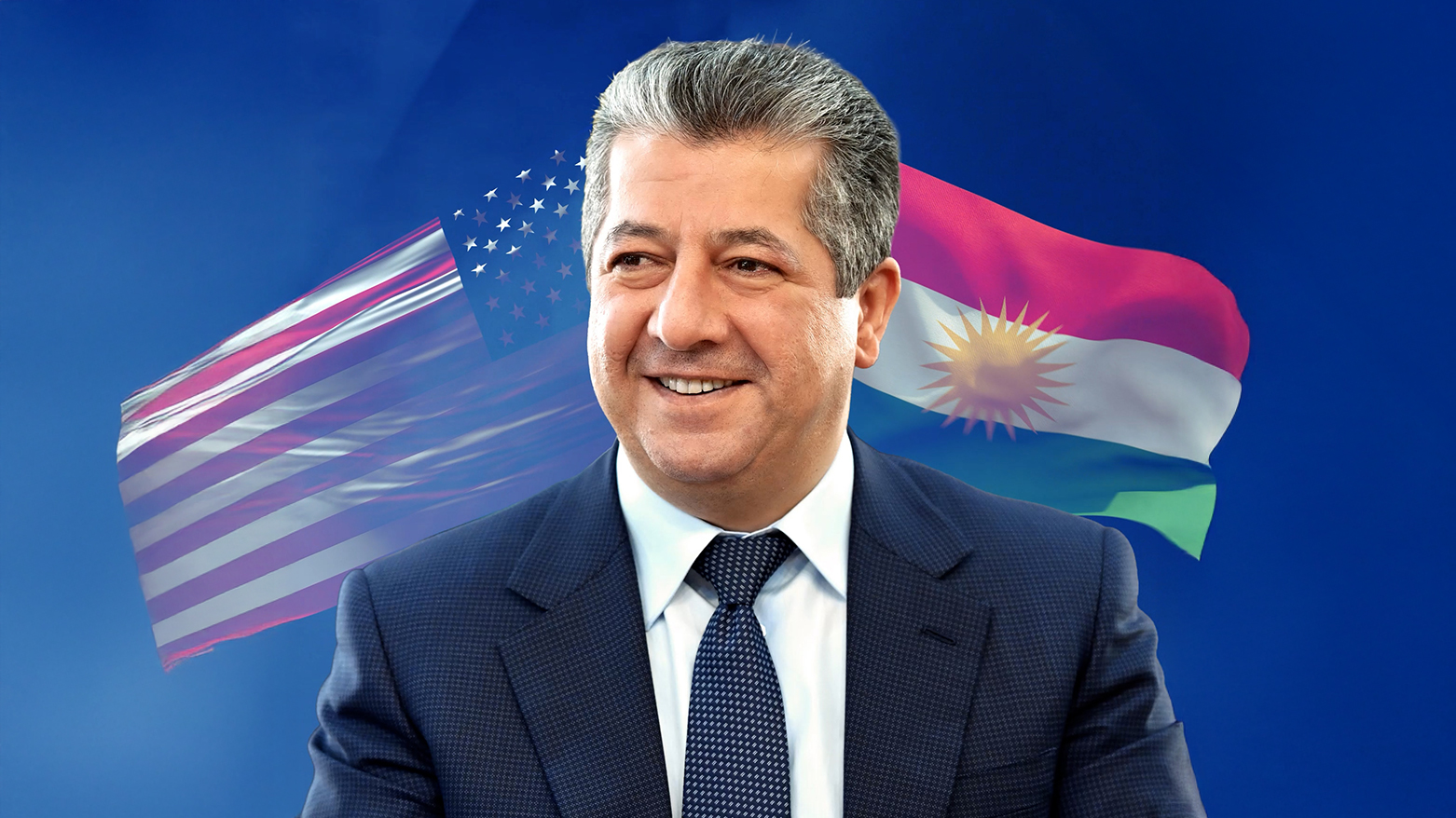
Yadgar Ismail
reporter
Prime Minister Barzani’s U.S. Mission Was a Strategic Leap of Kurdistan’s Future
Prime Minister Masrour Barzani’s formal trip to the United States in May 2025 represented a crucial phase in the Kurdistan Region’s quest for sustainable energy security, economic strength, and strategic global alliances.

When Kurdistan Region Prime Minister Masrour Barzani arrived in Washington in May 2025, the stakes for Kurdistan could not have been higher. The visit and the U.S. reception of his excellency and his accompanying delegates surpassed expectations. The visit reflected realpolitik governmentality of his excellency, a well-calculated strategy to further empower Kurdistan and maneuver to secure the Kurdistan Regional Government’s (KRG) survival in an era of regional unrest and global energy fluctuations. Prime Minister Barzani’s mission aimed at the transformation of Kurdistan in a crisis-torn territory into a position of energy innovation. His excellency has worked toward betterment of energy infrastructure and henceforth energy-independence within the framework of the “Stronger Kurdistan”, the motto of the 9th cabinet. He has been serious in manifesting Kurdish constitutional rights despite the unconstitutional war of cards perpetuated by Baghdad’s ultra-centric and centralist governance.
Kurdistan Region: A Strategic Ally and Partner in Counterterrorism and Trade
The Iraqi constitution literally empowers the Kurdistan Region to manage its natural resources. However, the so called federal government of Iraq made several attempts to block such legal attempts through the federal court, a court itself not barred from criticism due to its non-federal foundation, which is often accused of being a politicized tool used to justify political aspiration of deep-state Baghdad. Despite the 110 billion dollar oil and gas-deals, met with Senates and Pentagon officials, where he framed Kurdistan not merely as a victim of ISIS or Iraqi neglect but as an active player in regional stability. Meanwhile, a bipartisan congressional resolution reaffirming U.S. support for Kurdish constitutional rights materialized within days, which reflects a testament to PM Barzani’s ability to bridge America’s polarized politics, especially in the past 10 years. The message was clear: Kurdistan’s value lies not just in its oil but in its resilience as a democratic foothold in a neighborhood hostile to democracy, religious and ethnic minorities, and western interests.
The cornerstone of the visit was the energy deals with WesternZagros and HKN Energy to further stabilize KRG energy towards the completion of 24/7 electricity for Kurdistan Region. These agreements, though swiftly criticized by Baghdad as “unconstitutional”, rather a political claim as mentioned before.
Strategic Legitimacy Beyond Rhetoric
The U.S. Secretary of State Marco Rubio’s remarks on the $110 billion oil and gas deals with HKN Energy and WesternZagros marked a geopolitical milestone. His declaration that: "We expect these deals to flourish" and support for a "strong, resilient Iraqi Kurdistan within a federal Iraq" send positive signals to Baghdad in the favor of the KRG. However, Baghdad's antagonism to the deals, which has already excited quick reaction from Washington, a reaction that may further destabilize Iraq’s fragile partnership with the U.S. The U.S. investment guarantees a stronger status for the KRG as a sovereign energy partner unlike Baghdad that has made deals with the U.S. competitors or antagonists. This was later also backed through Marko Rubio’s phone call with Kurdistan Region President Nechirvan Barzani, where he labeled the U.S.-KRG ties a "fundamental pillar of America’s strategic relationship with Iraq". The soon-to-open American Consulate in Erbil – world’s largest – reiterates this concrete commitment.
Gas as a Mechanism Against Strangulation
Facing Baghdad’s 90% budget cut since 2023 and blocked oil exports (costing Iraq $30+ billion in lost revenue), Prime Minister Barzani signed the gas deals to reclaim Kurdish economic agency. Besides, the agreements with American energy companies reinforce the existing partnerships and invite new investment in upstream and midstream energy sectors. These deals are critical for revitalizing the Kurdistan Region’s oil and gas infrastructure, particularly in the aftermath of disruptions to export via the Iraq-Turkey pipeline. By developing the Miran (8 trillion scf) and Topkhana-Kurdamir (5 trillion scf) fields, shift Iraq's gas dependency to the KRG instead of regional exporters. This undermines Baghdad’s narrative of Kurdish dependency and positions Kurdistan as Iraq’s energy solution provider and the KRG Prime Minister stressed: "The more [Baghdad] shows softness, the more they will see our efforts benefit all Iraq".
Other Gains Beyond Energy Deals
Other than the deals, PM Barzani held a series of strategic meetings with top-ranking American officials, including members of Congress, senior Trump Administration figures, and leading policymakers in defense, energy, and foreign affairs. These meetings underscored a clear message: Kurdistan is a reliable and democratic partner in a volatile region. Also, PM Barzani pursued extensive lobbying initiatives directed at influential U.S., where he stressed the importance of equality in revenue-sharing in
Iraq and pointed out the economic hurdles caused by Baghdad. Additionally, the visit drew wide regional and international attention. Analysts in Washington, London, across Arabia, and in Erbil viewed the mission as a daring reaffirmation of Kurdish autonomy in the regional and global arena.
Constitutional Accountability and Baghdad’s Antagonism
Baghdad’s retaliatory antagonism and lawsuit against the gas deals, which could also be politically incited, exposes Iraq’s 16-year failure to pass a federal oil/gas law as mandated through Article 111 of the constitution to clarify resource management. Legally, the absence of Iraqi laws empower the KRG status to act while the iron is hot, as Prime Minister Barzani noted: "Our constitution grants Kurdistan the right to sign energy deals". Besides, the KRG’s legal stance rests on article 115, let alone other articles. Additionally, by inviting U.S. investment, PM Barzani forces a choice: Baghdad must either negotiate within the constitutional framework or cement its reputation as a saboteur of national prosperity and energy sovereignty. This would also eventually help federal electricity shortages affecting 40% of southern Iraqis.
Aspirations and Pragmatism
PM Barzani’s visit transcended energy deals; it was a master class in leveraging U.S. clout to enforce constitutional rights. As Baghdad holds tight to centralization, the KRG’s recent oil and gas deals prove that Kurdish prosperity needs federal cooperation, not permission as centrally demanded in Baghdad. As PM Barzani declared: "We’re building Iraq’s future, whether they like it or not". The ball is now in Baghdad’s court: uphold the constitution or face irreversible reputational and economic damage, let alone political reaction; statement of new position towards Iraq.
Prime Minister Masrour Barzani’s formal trip to the United States in May 2025 represented a crucial phase in the Kurdistan Region’s quest for sustainable energy security, economic strength, and strategic global alliances. Much more than a symbolic visit, Barzani’s objective was grounded in realpolitik, focusing on maintaining Kurdistan’s stability, achieving economic independence, and managing Iraq’s sensitive federal relationships. PM Barzani’s mission was less about immediate gains than about establishing a new narrative in a Middle East where there is much competition with mega economic powers worldwide, he cast Kurdistan as the rare actor that is both
resource-rich and west-friendly. As he told a Brookings Institute audience, “We’ve survived genocide, now, we’re building a legacy.” To Kurdish people, it was the right visit at the right time to the right place in pursuit of balance and stability in Iraq, a state influenced and directed externally.